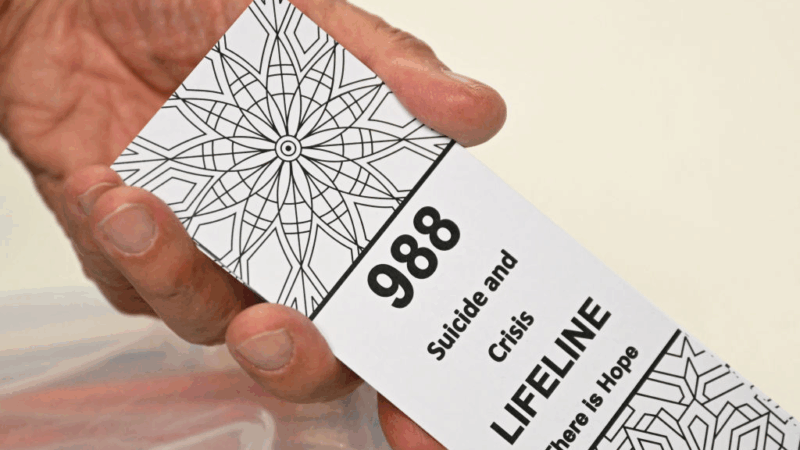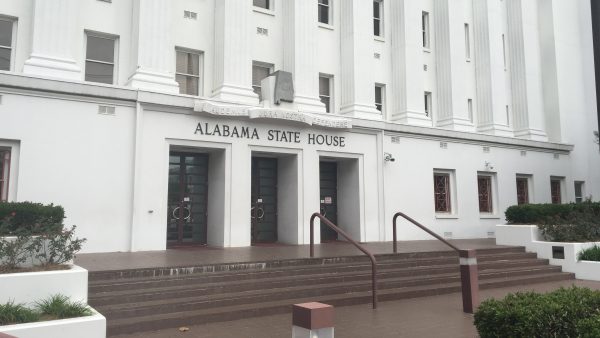Trump administration cuts specialized suicide prevention service for LGBTQ+ youth
The Trump administration is ending specialized suicide prevention services for LGBTQ+ youth on the 988 Suicide and Crisis Lifeline.
While anyone in a mental health crisis can call or text 988 and be connected to a trained counselor, the line has specially trained counselors, often with similar life experiences, for high risk groups like veterans and LGBTQ+ youth.
The federal government’s Substance Abuse and Mental Health Services Administration, or SAMHSA, announced Tuesday it was ending these specialized services for LGBTQ+ youth on July 17.
If you or someone you know is in crisis, please call, text or chat with the Suicide and Crisis Lifeline at 988, or contact the Crisis Text Line by texting TALK to 741741.
“This is devastating, to say the least,” Jaymes Black, CEO of The Trevor Project, said in a statement. The Trevor Project is one of several nonprofits administering the services. “The administration’s decision to remove a bipartisan, evidence-based service that has effectively supported a high-risk group of young people through their darkest moments is incomprehensible.”
SAMHSA said in its statement that while it “will no longer silo LGB+ youth services,” “everyone who contacts the 988 Lifeline will continue to receive access to skilled, caring, culturally competent crisis counselors who can help with suicidal, substance misuse, or mental health crises, or any other kind of emotional distress.”
SAMHSA launched the LGBTQ+ youth service as a pilot program when it launched the 988 helpline in 2022. It has received nearly 1.3 million contacts from LGBTQ+ people (calls, texts and online chats) since the launch.
The higher risk of suicide for LGBTQ+ youth has been well documented by surveys, psychologist Benjamin Miller, an adjunct professor at Stanford School of Medicine told NPR.
“Just last year alone, approximately 40% of LGBTQ youth considered suicide,” he says, citing data from the most recent survey by The Trevor Project, an advocacy group for LGBTQ+ youth. “One in 10 had an attempt. And for those looking for help, only about half could get the help they need.”
A line like 988 makes it easier for such youth to get mental health support, he adds.
This January and February, he says, the LGBTQ+ service served about 100,000 contacts, “which means that there are a lot of people who identify as LGBTQ+ who are seeking help through this line,” says Miller.
“What they get with that specialized services line is they get somebody who cares, somebody who’s been there with them, who has shared experiences, who can understand where they’re coming from, and who has been specially trained to address the situations that they are dealing with,” says Hannah Wesolowski, the chief advocacy officer at the non-profit National Alliance for Mental Illness.
“And we know that crisis services geared towards LGBTQ+ youth and young adults works,” says Wesolowski. “These services save lives.”
Taking that service away from 988 could be devastating for individuals, say Wesolowski and other mental health advocates.
Black wants gay and trans youth to know that they can still reach out to The Trevor Project’s own helpline.
“I want every LGBTQ+ young person to know that you are worthy, you are loved, and you belong – despite this heartbreaking news,” he said in a statement. “The Trevor Project’s crisis counselors are here for you 24/7, just as we always have been, to help you navigate anything you might be feeling right now.”
However, the organization doesn’t have the capacity to handle the same volume of calls and chats as 988, adds Black.
Wesolowski notes that a recent poll by NAMI showed that 61% of respondents supported specialized mental health services through 988 for high risk groups like LGBTQ+ youth.
In a statement, Senator Tammy Baldwin, D-Wis., said that the funding for 988’s LGBTQ+ service had been passed through Congress with bipartisan support.
She said she’ll fight to continue to fund suicide prevention for LGBTQ+ children. “Suicide prevention has been and should continue to be a nonpartisan issue, and I call on my Republican colleagues who have long supported this program to fight for these kids, too.”
The U.S. men’s hockey team to face Slovakia for a spot in an Olympic gold medal match
After an overtime nailbiter in the quarterfinals, the Americans return to the ice Friday in Milan to face the upstart Slovakia for a chance to play Canada in Sunday's Olympic gold medal game.
NASA eyes March 6 to launch 4 astronauts to the moon on Artemis II mission
The four astronauts heading to the moon for the lunar fly-by are the first humans to venture there since 1972. The ten-day mission will travel more than 600,000 miles.
Supreme Court strikes down Trump’s tariffs
The 6-3 ruling is a major blow to the president's signature economic policy.
The economy slowed in the last 3 months of the year — but was still solid in 2025
The U.S. economy grew 2.2% in 2025, a modest slowdown from 2.4% the previous year. GDP gains were fueled by solid consumer spending and business investment.
Ali Akbar, who’s sold newspapers on the streets of Paris for 50 years, is now a knight
For decades, Ali Akbar has sold papers on the Left Bank of Paris. Last month, France gave the beloved 73-year-old immigrant from Pakistan one of its highest honors — and his neighborhood is cheering.
Bill limiting environmental regulations goes to the governor’s desk
President Trump has taken steps to roll back environmental regulations. Some of that same action is taking place in statehouses, including Alabama's. Lawmakers gave final passage this week to a bill that would ban the state from enacting environmental rules more stringent than those at the federal level. That's where we start our weekly legislative update with Todd Stacy, host of Capitol Journal on Alabama Public Television.






